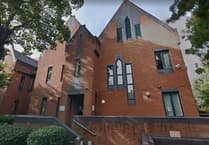Kilmersdon Gardeners: This was an evening for time travel as Dr Burroughes skilfully invoked the social attitudes, snobbery, and the gardening priorities of affluent Victorian households, with no shortage of cheap labour.
His father started as a gardening boy aged 12 at the end of the 19th century on an estate near Diss in Norfolk. Working 6.30am to 8pm five days a week with a shorter Saturday. He earned 6 shillings a week and had to pay 2s/9d to the Head Gardener for his apprenticeship fee. He spent all his time washing flower pots at the start. Each plant raised would use up to five pots to get to maturity. There were twenty four outdoor staff and the Head Gardener was the best paid member of staff earning about £450pa with his own cottage. He had a great responsibility to keep the household of 48 including the family, servants and guests supplied with fresh fruit, vegetables, and flowers creating elaborate table decorations for weekend house parties. Fresh grapes were expected for 10 months of the year, this required the glasshouse to be heated from January and plants hand pollinated. The man and horsepower required to cut the lawns and create an immaculate, cuttings free, chequerboard pattern, out of view of the family ran to over ten men and two booted ponies.
Burroughes senior moved on to work for the Earl of Roseberry developing his gardens at Mentmore near Leighton Buzzard before serving in the army in the First World War. He survived the war in hospital with ‘Spanish’ Flu. He continued as a gardener for William Robinson Author of ‘English Flower Garden’ published in 1893 the most successful gardening book ever written. Money from his prolific writing had allowed Robinson to purchase Gravetye Manor, Sussex, in 1895 with 1,000 acres of woodland 35 acres of garden around the house. Robinson believed ‘there is half an hour in the life of a pear when it is worth eating.’ He had a gardener watching his pears ripen so a butler could bring it to him, to eat at perfection! Burroughes senior then worked for Colonel Dixon near Launceston producing salad for the table and prize orchids in his glass house to win the Launceston Horticultural Society Open Cup 1933-5.
By the second World War the family had moved to Yeovil renting land from the Mayor Stanley Vincent. In the home guard Burroughes senior and his fellows were charged with defending Sutton Bingham Railway Bridge with no equipment until, towards the end of the war, a stirrup pump was provided. After the war he sold lettuce and sprouts to green grocers from South Wales to Cornwall sent from the five pre-Beeching railway stations in Yeovil.
Our next speaker meeting, is in the New Year on Wednesday, 10th January from 7.15pm for a 7.30pm start at Kilmersdon Village Hall. Amanda Hirst will tell us about ‘James Allen the Snowdrop King.’ Refreshments and raffle on arrival. Visitors are very welcome, see website for further details: www.kilmersdongardeners.org
Trisha Jordan


